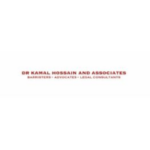-
Is your jurisdiction a common law or civil law jurisdiction?
Bulgaria is a civil law jurisdiction, where the primary source of law are the codes and laws adopted by the National Assembly.
Secondary legislation – regulations, ordinances and decrees adopted by the Council of Ministers or ministers, is also applicable in the construction sector.
-
What are the key statutory/legislative obligations relevant to construction and engineering projects?
The statutory obligations of the employer, contractor, designer and supervisor are regulated by the Spatial Development Act (SDA) and the Contracts and Obligations Act (COA).
Тhe essential obligations of the employer are to:
- procure everything necessary for the initiation of the construction;
- provide the necessary documents and designs for the construction (in contracts for construction);
- furnish the construction permit;
- ensure that the necessary contracts with the contractor, consultant and designer are in place prior to the commencement of the construction;
- approve the works executed in accordance with the designs; and
- pay the agreed remuneration.
The material obligation of the contractor are to:
- carry out the construction, at its own risk and with its own means, in accordance with the approved designs, in compliance with the issued construction documents and the essential requirements to constructions and in conformity with the relevant health and safety, environmental protection, noise, waste disposal, hygiene, fire safety, accessibility and sustainability requirements;
- ensure the quality and due performance of the construction works and their fitness for purpose;
- ensure the quality of the materials used for the construction, where it is agreed that the materials will be procured by the contractor and that the materials, articles, products, etc, are compliant with the essential requirements for construction are used in accordance with the respective technological requirements;
- immediately notify the employer if the design or the materials provided by the employer are inappropriate for the due performance of the construction;
- be responsible for deviations from the assignment or defects of the works; and
- provide warranty for the performed construction for the duration of the statutory warranty period(s).
The designer is responsible for:
- preparing the designs in accordance with the relevant requirements for construction and design, and the detailed development plan. notifying the employer in case the provided technical assignment/specifications or other requirements are inappropriate for the preparation of the designs;
- performing author’s supervision.
The consultant shall:
- assess the compliance of investment projects and/or exercises construction supervision;
- carry out inspection and control of the construction products delivered and put into the construction;
- may perform: pre-investment studies, preparation of the design process and co-ordination of the construction process until the construction is commissioned, including control of the quantities, quality and compliance of the construction and installation works performed for the execution of the contracts.
When exercising construction supervision, the consultant is also responsible for:
- the lawful initiation of the construction;
- exercising control in respect of the completeness and the correct drawing up of the acts and protocols during construction;
- suspending construction that does not meet applicable legal requirements;
- not allowing any damage to third parties and properties as a result of the construction;
- exercising control in respect of the compliance with the applicable occupational health and safety regulations;
- notifying the competent authorities in case of a breach; and
- preparing a final report to the employer upon completion of the construction.
-
Are there any specific requirements that parties should be aware of in relation to: (a) Health and safety; (b) Environmental; (c) Planning; (d) Employment; and (e) Anti-corruption and bribery.
- health and safety: constructions shall be designed in accordance with the relevant health and safety requirements. The consultant is responsible for ensuring that the construction is carried out in compliance with said requirements. A health and safety plan shall be developed and approved prior to the opening of the construction site. A health and safety coordinator shall be appointed;
- environmental issues: all construction designs shall be prepared in line with the requirements of the Environmental Protection Act, Biological Diversity Act and Cultural Heritage Act. In some instances, the issuance of the construction permit is conditional upon the obtaining of a special permit under the aforementioned act. Participants in the construction process shall adhere to these acts also during construction;
- planning: constructions shall be designed and executed in accordance with the provisions of the relevant detailed development plan. In some instances, the investment intention of the employer may require an amendment to the detailed development plan for the land plot, prior to the preparation of the construction designs;
- employment: some types of works (for example: welding, asbestos removal, installation of high-risk equipment such as boilers), may be carried out exclusively by workers who have the necessary qualification;
and
- anti-corruption and bribery: with respect to anti-corruption and bribery there are no special requirements in the construction sector.
-
What permits, licences and/or other documents do parties need before starting work, during work and after completion? Are there any penalties for non-compliance?
Constructions can be carried out on the basis of an into-force construction permit. Only the simplest types of construction works (ordinary repairs, small-scale excavation works and others) do not require a construction permit.
Before the opening of the construction site, a construction waste management plan and a health and safety plan shall be developed by the contractor and approved by the municipality.
If woody vegetation will be affected by the construction, a permit for its removal is needed. Additionally, ascertainment acts on the woody vegetation are to be drawn up before the initiation and after the completion of the construction.
An advanced notification of the municipal authorities of the initiation of the construction may be needed in case of excavation works of street and sidewalk surfaces and inner-neighbourhood spaces.
In case of construction of street networks and facilities of the technical infrastructure, the contractor shall take the necessary safety measures, by installing fences, crossings, placing warning signs, detour instruction and others.
During construction, there are mandatory acts and protocols that shall be drawn up and signed between the parties, such as act and protocols for: the opening of the construction site, suspension and resumption of the construction, acceptance of the structure, ascertainment of the fitness for acceptance of the construction.
Upon finalization of the rough construction, a protocol ascertaining its completion shall be obtained from the municipality.
Constructions can be used for their designated purpose only if they are commissioned with a relevant use permit or commissioning certificate.
Failure to comply with the above requirements may results in administrative penalties. Additionally, such non-compliance may render of the construction unlawful and the suspension of the construction or its removal at the expense of the employer may be ordered.
-
Is tort law or a law of extra-contractual obligations recognised in your jurisdiction?
Both tort (delict) law and law of extra-contractual obligations are recognized in Bulgaria.
Civil liability in Bulgarian law may arise from breach of a contractual obligation or from a delict. The Bulgarian Obligations and Contracts Act provides for a general rule whereby any person who has culpably caused harm to another, shall remedy the damage done. Provisions of the law provide for special cases of delict: in some instances, property owners may be entitled to special compensation for the damages done to their property as a result of pre-investment studies or construction and installation works.
-
Who are the typical parties involved in a construction and engineering project?
The typical parties involved in a construction and engineering projects are: the employer (assignor), the contractor (constructor), the designer, the consultant, the natural person exercising control on part structural, the technical director, the supplier of machinery and equipment
-
What are the most popular methods of procurement?
In the private sector (where the employer is a legally capable individual or a privately-owned legal entity) the most popular form of procurement is direct contracting. Larger enterprises, such as oil companies, power plant operators, communal services providers, may rely on public bidding.
In the public sector (where the employer is usually a state or municipal authority) the most common type of procurement is a public procurement procedure under the Public Procurements Act. Open procedures – where the participation of all interested parties can submit an offer – are most commonly used.
-
What are the most popular standard forms of contract? Do parties commonly amend these standard forms?
When it comes to small and/or privately commissioned construction projects, standard contracts, such as FIDIC Conditions of Contract, are not commonly used.
The use of the 1999 editions of the FIDIC Red and Yellow books is relatively common in public projects which are financed in whole or in part by international financing institutions or through funds of the European Union, especially large infrastructure projects. In recent years the use of the 2017 editions of the FIDIC Yellow and Silver books has increased. The 2021 edition of the FIDIC Green book is also used for smaller scale projects with limited risks.
The Particular Conditions are modified in accordance with the mandatory provisions of the Bulgarian construction legislation and in compliance with the FIDIC Golden Principles.
Standardised documents and requirements are applicable to certain public procurements, such as water projects.
-
Are there any restrictions or legislative regimes affecting procurement?
There are no restrictions or legislative regimes affecting procurement in the private sector.
In the public sector, procurements are governed by the provisions of the Public Procurements Act.
-
Do parties typically engage consultants? What forms are used?
The appointment of a consultant is a common practice. Moreover, such an appointment is mandatory for most constructions as the consultant is the person who exercises construction supervision.
The relations between the employer and the consultant shall be arranged in a written agreement. In the private sector, standard forms are rarely used. FIDIC White Book 2017 is used in public projects, especially large infrastructure projects.
-
Is subcontracting permitted?
Subcontracting is generally permitted, with the proviso that under SDA the contractor is allowed to subcontract only individual construction and installation works or parts (stages) of the construction. The construction contract may expressly prohibit the contractor from assigning any part of its obligations to a subcontractor.
Furthermore, statutory requirements apply to subcontracting under public procurement contracts for construction.
-
How are projects typically financed?
In the private sector construction projects in Bulgaria are typically financed through bank loans between the employer and a commercial bank. Inter-company loans are also utilized.
In the public sector, employers often rely on EU funding programmes and/or financing through the state or municipal budget.
-
What kind of security is available for employers, e.g. performance bonds, advance payment bonds, parent company guarantees? How long are these typically held for?
Employers use various types of security: advance payment and retention money guarantees, bank guarantees or performance guarantees, or in some cases: parent company guarantees or suretyship. In public procurement contracts the contractor provides guarantees in a form of deposit, bank guarantee or insurance.
Typically, guarantees are not fully released until the commissioning (putting into operation) of the construction.
-
Is there any specific legislation relating to payment in the industry?
Under Bulgarian law the contractor is entitled to remuneration for the work accepted by the employer, and the employer is under the obligation to accept only the work performed in accordance with the contract. In case remuneration at unit prices is agreed, its amount is determined at the acceptance of the works. In the event of change in the duly determined price for workforce or materials, the remuneration can also be amended.
That said, the parties are free to negotiate the specific terms for acceptance of the work and its payment. In general, a model where the price is divided into an advance payment, multiple interim payments and final payment is commonly used. Provisions that the interim payment payments are conditional upon the acceptance by the employer of the works completed up to a certain stage and that final payment is made upon commissioning are also widely used.
In general, the parties under a commercial transaction (such as a construction contract) are entitled to negotiate a term for payment of no more than 60 days. A longer term may be agreed as an exception: when this is required by the nature of the goods or service or for another important reason, if this does not constitute a clear abuse of the creditor’s interest and does not violate good morals.
-
Are pay-when-paid clauses (i.e clauses permitting payment to be made by a contractor only when it has been paid by the employer) permitted? Are they commonly used?
In the private sector pay-when-paid clauses are permitted and can be agreed upon based on freedom of contract. That said, court practice has established that such clauses shall not be applied in a manner that allows for abuse of the payer’s rights. For instance, payment to the subcontractor shall not be refused on the grounds that the main contractor has not taken the necessary means in order to receive payment from the employer.
In the public sector – under public procurement contracts for construction the rules for direct payments to the subcontractors shall be indicated in the procurement documents and in the public procurement contract.
-
Do your contracts contain retention provisions and, if so, how do they operate?
Retention provisions (on real estate and commercial liens) are not applicable to the construction contracts in Bulgaria.
As per Bulgarian COA a debtor, who has against its creditor a due receivable stemming from the same legal relationship, in entitled to refuse to perform its, until the creditor performs. Furthermore, where it is clear from the circumstances that one of one of the parties may fail to perform its obligation, the other party may refuse to perform its obligations unless it is given an adequate security. Similar provisions are often expressly provided in construction contracts in Bulgaria.
Additionally, provisions regulating the retention of money until the completion of certain work, or the commissioning of the construction are common in construction contracts.
-
Do contracts commonly contain liquidated delay damages provisions and are these upheld by the courts?
Contracts often contain provisions for liquidated damages (including liquidated delay) , the purpose of which is to guarantee the performance of the obligation and to act as compensation for the damages in case of non-performance, without the need to prove their amount.
In contracts between civilians, the liquidated damages’ amount can be reduced by the court, if the liquidated damages are excessively larger than the actual amount of the damages incurred or if the obligation is performed partially or inaccurately.
In commercial contracts (such as a construction contract), the liquidated damages’ amount cannot be reduced by the court. However, the court can declare the liquidated damages as null and void and reject the claim. This will be the case if the amount of the liquidated damages is so great, that the liquidated damages go beyond their guaranteeing, compensating and sanctioning purpose and create grounds for unjust enrichment of the creditor.
-
Are the parties able to exclude or limit liability?
The parties can agree on capping the compensations and/or liquidated damages potentially due under the contract.
If the parties do not agree to limit the liability and in case one of the parties suffers damages greater than the amount of the agreed liquidated damages, the injured party is entitled to seek compensation for the damages exceeding the amount of the liquidated damages.
In any case, the parties cannot exclude or limit in advance the debtor’s liability for gross negligence or wilful misconduct. Further, any exclusion of the liability of the parties for non-compliance with the statutory requirements would also be deemed invalid. Any exclusion or time limitation of the warranty liability of the contractor is invalid.
-
Are there any restrictions on termination? Can parties terminate for convenience? Force majeure?
There are certain general restrictions that apply to termination. In the cases of termination for cause (rescindment of the contract):
- The rescinding party shall provide to the defaulting party an appropriate term for remedying of the breach. This not mandatory if the performance has become impossible in whole or in part, if due to the defaulting party’s delay it has become useless or if the obligation had to be fulfilled without fail within the agreed time.
- The notice of termination shall be made in writing.
- The terminating party is not entitled to cancel the contract in cases of non-material breach: meaning cases where the non-performed part is not significant in view of the terminating party’s interest;
- Rescindment of construction contracts where real property rights are transferred or established shall be made by court decision.
The Bulgarian law also provides for special grounds for termination of the construction contract, by unilateral written notification:
- termination by the contractor if the employer has provided a design or material inappropriate for the execution of the work, the contractor has promptly notified and requested the employer to make changes or supply suitable material, and the employer has failed to make the requested changes or supply suitable material;
- termination by the employer in the presence of reasonable cause, even if the performance has begun but not has been completed and accepted;
- rescindment by employer if it becomes apparent that the contractor will not perform on time, in the agreed or due manner;
- rescindment by employer in the presence of material and irremediable defects which render the work unfit for the ordinary or agreed purpose;
Furthermore, the parties have the right to terminate the contract for convenience only if this is expressly agreed and in accordance with the terms and conditions set out under the contract.
Special grounds for termination are provided for in the Public Procurement Act and the Concessions Act in respect of public procurement and concession contracts, respectively.
As per the Bulgarian Commerce Act, a force majeure is as an unforeseen or unavoidable event of extraordinary nature, which has occurred after the conclusion of the contract, is of a temporary nature and there is a causal link between the event and results in the impossibility of performance. Force majeure events are events that fall outside the scope of the usual business risk, associated with the specific commercial activity of the trader.
The Bulgarian legislation does not contain a list of events classified as force majeure. These generally include: natural disasters (fire, flood, hurricane, earthquake), state of war, explosion, labour strike, etc. The parties are entitled to specify events that they consider being or not being force majeure events.
The existence for a force majeure event does not result in the termination of the contract, nor does it entitle the party to terminate the contract. However, if the force majeure lasts long enough so that one of the parties no longer has interest in the contract, this party is entitled to unilaterally terminate the contract.
-
What rights are commonly granted to third parties (e.g. funders, purchasers, renters) and, if so, how is this achieved?
As mentioned, constructions are often financed though bank loans. By virtue of a special provision of the Bulgarian Credit Institutions Act banks have a right to statutory mortgage over the property or the in-rem rights acquired with the funds under the loan agreement.
Purchasers benefit from the mandatory warranty terms that are binding on the contractor.
In some instances, a right of way may need to be established for the construction of the relevant electric, water and sewerage, heating networks, that favours owners of neighbouring properties or the relevant utility operator.
A common practice for commercial properties is the conclusion of rent agreement for properties that are in the process of construction. In such cases, it is often agreed that the renter has the right to provide the designs for the execution of the finishing works or that the renter will have the right to select the contractor of such works. Further, the renter is granted with access to the property prior to its commissioning for the purpose of performing the finishing works.
-
Do contracts typically contain strict provisions governing notification of claims for additional time and money which act as conditions precedent to bringing claims? Does your jurisdiction recognise such notices as conditions precedent?
Contracts often contain provisions which require that one of the parties serves a notification to the other party. This can be agreed as a prerequisite for benefitting from certain rights or for deeming that one of the parties is in default in performance of its obligations.
That said, parties cannot limit or exclude on a contractual basis their rights to bring a claim before the court. Hence, such provisions cannot be considered as conditions precedent to bringing claims. Moreover, court practice has established that if the contract requires a notification to be given, in some instances the court claim can be considered as such notification.
Nevertheless, adherence to the provisions of the contract governing notifications, is often examined by the courts when assessing the merits of the claim.
-
What insurances are the parties required to hold? And how long for?
By virtue of the law, professional liability insurance is mandatory for contractors, designers, technical supervisors for part structural, construction supervisors, and consultants.
This insurance provides coverage against damages to other construction participants or third parties caused by unlawful acts or omissions within the course of performance of their obligations. War/terrorism, radiation effects, misuse of flammable/explosive substances, penalties/fines, and injuries to the insured person’s workers, are excluded from the coverage of this insurance.
Beyond the mandatory coverage, parties can freely arrange supplementary insurance, such as contractor liability for the specific site, protection for materials and equipment (when financed or owned by the employer), mandatory work accident insurance for contractors.
Construction All Risk (CAR) insurance is also widely recognized and accepted.
Typically, such insurances are held till completion and commissioning of the construction.
-
How are construction and engineering disputes typically resolved in your jurisdiction (e.g. arbitration, litigation, adjudication)? What alternatives are available?
The most popular way for resolution of construction and engineering disputes is litigation. Disputes stemming from a contract: claims for payment of the remuneration under the contract, liquidated damages, compensations, defects are resolved by the civil courts. Disputes relating to the legality of the construction: such as orders for suspension of the construction or its removal, are resolved by the administrative courts.
Arbitration is also commonly used.
Mediation is available, although not popular, alternative for dispute resolution.
-
How supportive are the local courts of arbitration (domestic and international)? How long does it typically take to enforce an award?
Local courts of arbitration are generally supportive in resolution of disputes.
On the basis of an arbitral award of a local court of arbitration, the creditor is entitled to request the issuance of a writ of execution. Attached to the request shall be the in-force arbitral award and proof that it has been served to the debtor. In such instances, enforcement can commence within a few weeks from the date of the arbitral award.
When it comes to the enforcement in Bulgaria of arbitral awards of foreign courts of arbitration, the creditor shall bring claim to the relevant district court (in most cases this the Sofia City Court) for recognition and enforcement of the foreign arbitral award in Bulgaria. To the claim shall be attached the necessary documents, namely: a certified copy or an original of the arbitral agreement; an original or a copy of the award, certified by the court of arbitration, as well as a certificate issued by the latter, certifying that the award was served to the parties and has entered into force, agreement in writing which includes an arbitral clause, in original or its certified copy. The decision for recognition and enforcement of the arbitral award of the district court is subject to appeal before the relevant appellate court and the judgment of the latter – before the Supreme Court of Cassation. A writ of execution can be issued only on the basis of an in-force decision of the court, allowing the enforcement of the arbitral award.
-
Are there any limitation periods for commencing disputes in your jurisdiction?
There Bulgarian law set forts multiple limitation periods. It should be pointed out, however, that the expiry of such term does not result in the inadmissibility of the claim (i.e. impossibility to commence a dispute before court), but in the rejection of the claim due to lack of merit, and only provided that the defendant makes an objection for expiry of the limitation term.
The most common limitation terms are:
- A general limitation term of 5 years as of the due date of the respective receivable (regardless whether on contractual or non-contractual basis);
- A short limitation term of 3 years term: for compensations and liquidated damages from contract non-performance, interest, rent and periodic payments;
- A special 5 years limitation term for the contractor’s liability for deviations from the assignment and defects of the contractor’s works performed. This liability is different and independent from the contractor’s warranty liability: the latter having a duration of 2-13 years depending on the type of construction.
-
How common are multi-party disputes? How is liability apportioned between multiple defendants? Does your jurisdiction recognise net contribution clauses (which limit the liability of a defaulting party to a “fair and reasonable” proportion of the innocent party’s losses), and are these commonly used?
Multi-party disputes are more common in complex constructions, especially in the public sector. This is due to the fact that in such instances the contractor and/or the consultant is often a joint venture between multiple companies, resulting in multiple plaintiffs or defendants.
The plaintiff is entitled to lodge a claim against multiple defendants. The distribution of liability between the defendants depends on the nature of the claim, the relations between the defendants and the plaintiff, and the internal relations between the multiple defendants.
Furthermore, a third person may intervene in order to assist one of the parties (plaintiff or defendant) if the said third person has an interest in the judgment being rendered in favour of the said party. The plaintiff and the respondent are also entitled to implead a third person.
In the case of more than one debtor, the co-debtors are jointly and severally liable to the creditor, only if this is agreed under the contract, or so follows from the nature of the obligation or by law. Each of the joint and several co-debtors is generally liable to the creditor for the full amount of the obligation, and the liability is distributed equally between them, unless otherwise agreed.
Based on the freedom of contract, the parties can negotiate on net contribution clauses in contract, allowing for a specific distribution of the liability to the creditor between the co-debtors. However, such clauses are not commonly used.
-
What are the biggest challenges and opportunities facing the construction sector in your jurisdiction?
The political instability in the country, accompanied by lack of sufficient workforce and increase of the costs of materials, are to be identified as the biggest challenges that the construction sector is facing.
Against this background, in 2024 the number of newly commenced constructions and the value of the formed production in the branch have increased, as has the median salary in the sector, while the costs for acquisition of long-term material assets (including equipment and machinery) and number of unemployed persons have decreased.
-
What types of project are currently attracting the most investment in your jurisdiction (e.g. infrastructure, power, commercial property, offshore)?
Although projects such manufacturing facilities, relax/recreational and sport activities have marked a growth in 2024, residential buildings like apartment buildings, houses, mixed-use buildings are still attracting most investment in Bulgaria.
In the public sector, while engineering infrastructure and buildings are at the vanguard of procurements in terms of nominal value and number of the investments, the largest growth is marked by the water and sewage and the energy infrastructure.
-
How do you envisage technology affecting the construction and engineering industry in your jurisdiction over the next five years?
Technology is expected to have a positive impact on the construction and engineering industry.
The digitalization of the construction sector, which is one of the measures provided under the National Resilience and Recovery Plan, including the implementation business information modelling (BIM) tools should reduce the administrative burden on investors and contracts, by facilitating the access and exchange of project documentation.
-
What do you anticipate to be the impact from ongoing supply chain issues and the escalation of material costs over the coming year?
Ongoing supply chain disruptions, coupled with the prospective imposition of duties on imports to and from the EU, are likely to put additional pressure on the costs of materials. Difficulties in the supply of widely used construction machinery and equipment could lead to delays in performance of construction projects. This would, in turn result in a further increase of the already steadily growing prices of real estate. Although demand in Bulgaria is currently strong enough to support such prices, a global shift of economic perspective may paint a less optimistic picture for employers and contracts.
Bulgaria: Construction
This country-specific Q&A provides an overview of Construction laws and regulations applicable in Bulgaria.
-
Is your jurisdiction a common law or civil law jurisdiction?
-
What are the key statutory/legislative obligations relevant to construction and engineering projects?
-
Are there any specific requirements that parties should be aware of in relation to: (a) Health and safety; (b) Environmental; (c) Planning; (d) Employment; and (e) Anti-corruption and bribery.
-
What permits, licences and/or other documents do parties need before starting work, during work and after completion? Are there any penalties for non-compliance?
-
Is tort law or a law of extra-contractual obligations recognised in your jurisdiction?
-
Who are the typical parties involved in a construction and engineering project?
-
What are the most popular methods of procurement?
-
What are the most popular standard forms of contract? Do parties commonly amend these standard forms?
-
Are there any restrictions or legislative regimes affecting procurement?
-
Do parties typically engage consultants? What forms are used?
-
Is subcontracting permitted?
-
How are projects typically financed?
-
What kind of security is available for employers, e.g. performance bonds, advance payment bonds, parent company guarantees? How long are these typically held for?
-
Is there any specific legislation relating to payment in the industry?
-
Are pay-when-paid clauses (i.e clauses permitting payment to be made by a contractor only when it has been paid by the employer) permitted? Are they commonly used?
-
Do your contracts contain retention provisions and, if so, how do they operate?
-
Do contracts commonly contain liquidated delay damages provisions and are these upheld by the courts?
-
Are the parties able to exclude or limit liability?
-
Are there any restrictions on termination? Can parties terminate for convenience? Force majeure?
-
What rights are commonly granted to third parties (e.g. funders, purchasers, renters) and, if so, how is this achieved?
-
Do contracts typically contain strict provisions governing notification of claims for additional time and money which act as conditions precedent to bringing claims? Does your jurisdiction recognise such notices as conditions precedent?
-
What insurances are the parties required to hold? And how long for?
-
How are construction and engineering disputes typically resolved in your jurisdiction (e.g. arbitration, litigation, adjudication)? What alternatives are available?
-
How supportive are the local courts of arbitration (domestic and international)? How long does it typically take to enforce an award?
-
Are there any limitation periods for commencing disputes in your jurisdiction?
-
How common are multi-party disputes? How is liability apportioned between multiple defendants? Does your jurisdiction recognise net contribution clauses (which limit the liability of a defaulting party to a “fair and reasonable” proportion of the innocent party’s losses), and are these commonly used?
-
What are the biggest challenges and opportunities facing the construction sector in your jurisdiction?
-
What types of project are currently attracting the most investment in your jurisdiction (e.g. infrastructure, power, commercial property, offshore)?
-
How do you envisage technology affecting the construction and engineering industry in your jurisdiction over the next five years?
-
What do you anticipate to be the impact from ongoing supply chain issues and the escalation of material costs over the coming year?



















